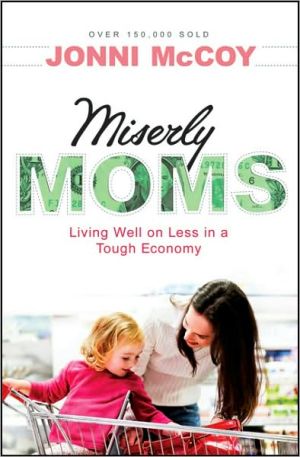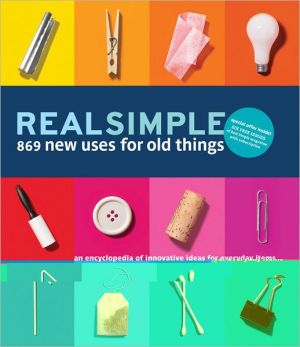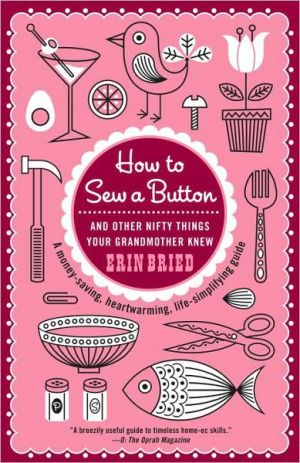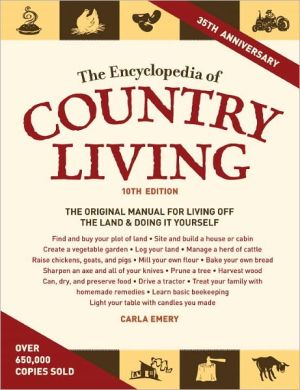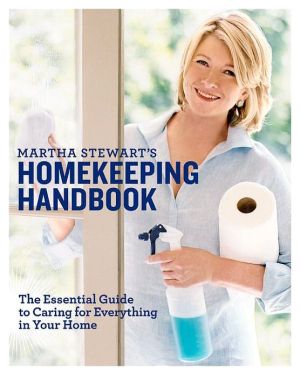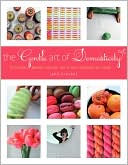Miserly Moms: Living Well on Less in a Tough Economy
With gas and food prices soaring, there's more need than ever before for Jonni McCoy's Miserly Moms. Jonni shares the money-saving strategies that allowed her family to transition from two incomes to one. These practical, proven strategies, tips, and recipes will help anyone live frugally without feeling deprived. Real-life examples show how anyone can learn to live more carefully and reach their financial goals. Now in its fourth edition, Miserly Moms is packed with even more ways to reduce...
Search in google:
With gas and food prices soaring, there's more need than ever before for Jonni McCoy's Miserly Moms. Jonni shares the money-saving strategies that allowed her family to transition from two incomes to one. These practical, proven strategies, tips, and recipes will help anyone live frugally without feeling deprived. Real-life examples show how anyone can learn to live more carefully and reach their financial goals. Now in its fourth edition, Miserly Moms is packed with even more ways to reduce a family's expenses and expose hidden living costs.
Miserly Moms\ Living Well on Less in a Tough Economy \ \ By Jonni McCoy \ Bethany House Publishers\ Copyright © 2009 Jonni McCoy\ All right reserved.\ ISBN: 978-0-7642-0641-2 \ \ \ Introduction\ Why This Book Is Different? \ When I first wrote this book, our family lived in one of the most expensive parts of America-the San Francisco Bay Area. Most families were spending half their income to pay the high rent or mortgage. Consequently, most families needed both parents to work just to get by. We were one of those families. According to statistics, my husband and I were a middle-income family, with my job providing half of our joint income. I was a career woman who received much joy from her work.\ After our first child was born, I began to feel God tugging at my heart to stay home to raise our family. At first I thought I hadn't heard correctly. We couldn't live in the Bay Area on half of our joint income. At least that's what we believed. Trying to interpret what God was saying to me, I arranged a job-sharing program where I worked part time. We continued in that lifestyle for several years. Once it became clear that the part-time arrangement was not God's plan, and that I was supposed to stay home full time, we were back to square one.\ We thought we would have to move to a less expensive community in order to live on my husband's salary alone. So that's what we decided to do, but things changed at the last minute. We made an offer on a house, and someone made an offer on our home. One night I realized that I didn't want my husband commuting several hours each day, and I didn't like the idea of being so far away from our church and our friends. We were able to get out of both house offers with no penalties. But I had already quit my job. So there we were, living on half of our income in an expensive area.\ Our choices were either for me to go back to work or to somehow reduce our expenses. But I knew I was supposed to stay at home with my family, so instead of bringing in a salary, I began to research how we could make our money go further. This opened my eyes to the hidden costs in the way we lived, and I questioned whether some people could even afford to be working!\ When we calculated what our loss of income would do to our budget, we didn't realize how many hidden costs would disappear once I stopped working. Given the cost of child care, taxes, gasoline, parking, convenience foods (we were often too tired to cook after work), lunches out, office clothes, and all the other amenities associated with working, not much of our salaries were even used at home. I wasn't alone in this realization. I read that some financial experts had calculated the cost of working as nine to twenty-five dollars per hour. I was stunned! This meant that many of us who worked were actually paying for the privilege of working. I was inspired by the challenge of reducing our budget instead of increasing our salary.\ This book is not about how to make money at home. Many other books have done a fine job of that. I've listed a few of these books in "Additional Resources," appendix B, for those interested in pursuing this option.\ Many books have been written on how to be thrifty. Some are theoretical in their approach, filled with interviews with other frugal people and impersonal statistics. Some are focused on a specific way to save, such as reducing credit-card debt or using grocery coupons. Others try to be broad but are too extreme, cutting back in every aspect of life, whether it is cost-effective or not.\ There is nothing theoretical in this book. It is a testimony of our journey. We were a two-income yuppie family that chose to make a lifestyle change. We have lived out all of the advice I suggest here.\ I look at saving money as a means to an end. It is a job I perform in order to afford my staying at home. I don't do the things that I share in this book just for fun. I enjoy my luxuries if and when I can afford them. Some people take pleasure in being frugal as a hobby. I, however, must be convinced of the savings return before I do something frugal. For example, I find little profit in reusing envelopes or dryer lint. Those activities may save a penny or two, but that would not be a good use of my time. If you only have a little time to invest in saving, it might as well be put to use in the most effective places. Frugal people are looking for the best overall value. That value may not be money. Cheap people always put money first.\ I believe in putting your efforts to work where they will save you the most. That is why the book is organized as it is-from the greatest savings opportunities to the least. Groceries are the first and largest topic that I discuss because it is where most families can save the most. We were able to save hundreds of dollars per month in this category alone.\ I discuss other areas where we also achieved significant savings. When added together with the elimination of working expenses (the cost of working), we made a large dent in what we spent-the savings adding up to what some people might earn at a job.\ Some people already have thought of the ideas in this book, especially those with parents or grandparents who lived through the Depression. Those people knew how to make what was necessary and live without the unnecessary. Their wisdom has been lost, and many think we shouldn't have to live without the things we desire. But others have asked for help with creative ideas to cut costs in their lives. It is for these people that I wrote this book. My desire is to get their creative juices in motion so they can start thinking of ways to save and meet their goals.\ Your spouse doesn't have to earn a high wage in order for you to live on one income. I know several families including my own) who have willingly lived on less than half of what the average family in their area earns.\ We have added another member to our family. We have pets. We go on vacations. We even buy nice things for our kids and for ourselves.\ These money-saving principles really can make a difference.\ What do you have to lose?\ (Continues...)\ \ \ \ \ Excerpted from Miserly Moms by Jonni McCoy Copyright © 2009 by Jonni McCoy. Excerpted by permission.\ All rights reserved. No part of this excerpt may be reproduced or reprinted without permission in writing from the publisher.\ Excerpts are provided by Dial-A-Book Inc. solely for the personal use of visitors to this web site. \ \
